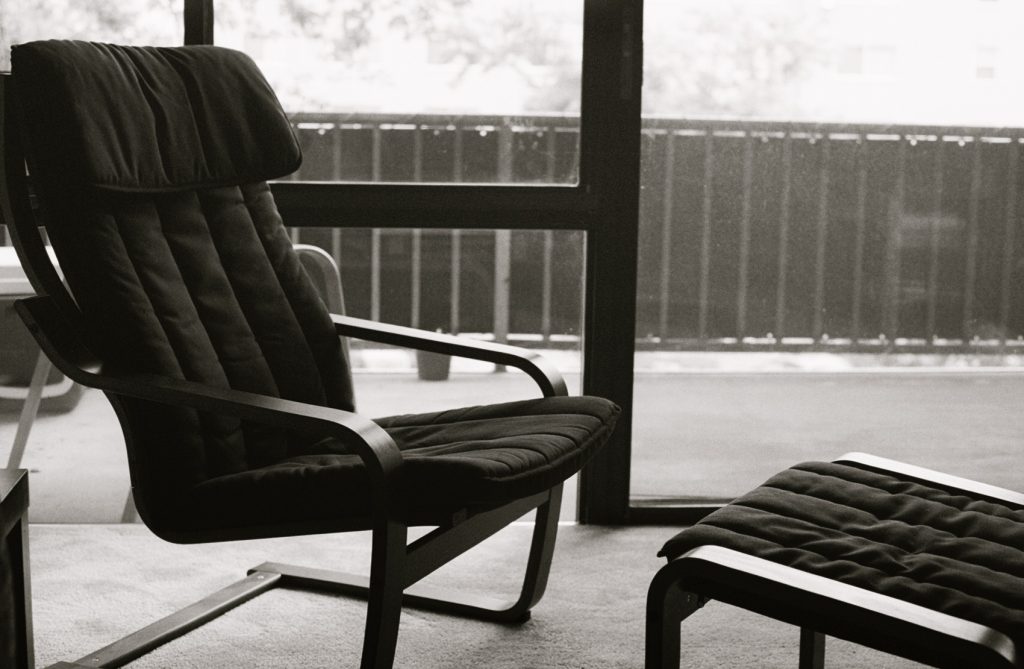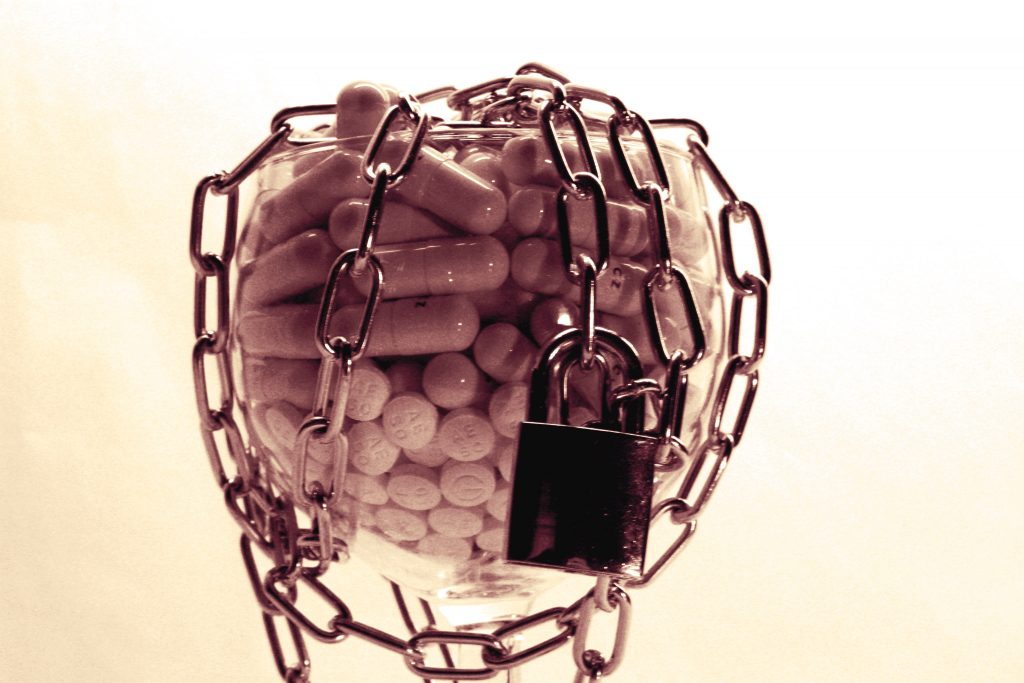This is the first in a series of anonymous articles exploring what it is like to work on the frontline of drug treatment in the UK and deal with the issues which face both those who walk through the door for help, and those who are tasked with providing it.
The young lady is slumped in front of me on a chair, intermittently sobbing with her head held deep in her hands. The room has an overwhelming smell to it: a sharp sulphuric taste to the air which continually reminds us of the disparity the young lady is facing.
Minutes earlier we were forced to break into the service user toilet after becoming concerned for her safety. She was found having set fire to her own hair; an act of utter fear and confusion, symbolic of her rapidly deteriorating situation and wellbeing. I look to my colleague and we share a familiar look of desperation, knowing full well the complexity of her situation and the lengths which we have gone to get her the help she needs.
This latest incident follows a long history of serious self-harm and attempts of suicide, yet we have still failed to link her into a mental health service. The last rejected referral concluded that although she is highly likely to commit suicide, it would be due to an accident rather than her being mentally unwell. Such a decision was hard to fathom in that room, seeing a woman so desperate, confused and in my professional opinion, most definitely mentally unwell.
The anecdote above is not by any means uncommon in drug treatment services. During the eight years in which I have worked in treatment there have been countless scenarios just like the one above. We have had a man burst into the reception armed with a metal pipe thinking they are being followed by the government, a chap who walked in dressed as a modern-day Robin Hood with bow and arrow demanding he see his worker and a young man who poured petrol on his head and set himself on fire because he thought it would help him get a prescription, all within the past year. All these incidents involve people who are clearly unwell, lost in the depths of drug addiction. So why then is it so hard to get them linked in with mental health services?
The main barrier we face in getting service users mental health support is their actual use of drugs in the first place. Mental health services are by no means specialists in addiction and the line most often cited in referrals which bounce back is: they need to stop using drugs, then we can work with them. There is some sense in this approach, psychoactive drugs impact on our cognition, behaviour and ability to engage in therapy, so whilst using them an individual is not best placed to receive support. In reality though this leaves us very little to work with. Just like mental health services are not addiction specialists, treatment services are not mental health specialists, so the service user is left in a state of limbo while they continue to hold a problematic relationship with drugs. This creates a chicken and egg like situation where treatment services think the mental health issue drives the drug use and the mental health service thinks the drug use creates a mental health problem.
The other elephant in the room is that mental health services are facing vast cuts in the UK. Research from community care and the BBC shows an 8% drop in funding from 2010-11 to 2015-16 despite a 20% increase in referrals. Amidst this drop, treatment services act as a protective factor and provide the mental health services with an excuse to not pick up the referral and in the process, allowing them to focus on those with less support. While this seems practical, the reality is treatment services are full of complex service users who require specialist mental health interventions and the only thing on offer is crisis management. On the frontline of drug treatment, it feels like our most complex of clients are an easy referral to dodge and our support provides the excuse.
This unusual limbo which exists for service users is a by-product of no-one knowing what to do with them. Surely the relationship between thought and problematic behaviour is one of mental health. So why are both treatment services and mental health services not set up to deal with it as such? All the evidence of best practice suggests a dual approach is required; service users who experience problematic drug use and a mental health problem are said to have a ‘dual diagnosis’ need and the work offered should encompass both drug use and mental health. Yet this does not seem to manifest itself in the real world. How much training on addiction do frontline mental health workers receive? Where do they ascertain their knowledge base and methods of intervention?
Whenever I consider the problems we face in drug treatment it always seems to come back to an issue of education and stigma. The perceived complexity of drug use creates an immediate barrier for other services to provide a much-needed intervention, and drug treatment services find themselves ill-equipped to deal with the demand. Treatment services are full of highly complex and unwell service users who are not receiving effective interventions. The standard package of training for a drugs worker is a short course on motivational interviewing and a day’s CBT training, both interventions woefully under-equipped to deal with the complexity of many who walk through the door.
We need to think differently about mental health and treatment. Drug addiction is a symptom of internal and/or external disconnection not a poor moral choice. Johann Hari’s work sheds light on the need for us to think about addiction differently. Those who fall into the depth of addiction are unwell and we as a society need to come together and help pick them up. Mental health services fall foul of the same issues that we see in wider society, they don’t want to accept and confront this highly complex and challenging group that need their help. They do not have the infrastructure or the knowledge. For many mental health services, the use of the drug is the primary issue and by simply stopping it the person should become well again. The reality is not so simple.
For the past eight years, I have witnessed the impact of the criminalisation of drugs. We continue to treat a mental health problem as a criminal one. The state punishes users of illicit drugs for having an identical relationship to those who use alcohol to manage their thoughts and emotions. This creates a social stigma and in turn pushes the most complex of illicit drug users out into deeply trenched sub cultures, away from wider societies judgement. I think such stigmatisations fuel the problems we face in getting this cohort support from mental health services. In the experience of my colleagues and I, it is far easier to link users of alcohol into other services, less barriers appear as more understanding increases.
There could not be a more important time to confront the issue as opiate deaths in the UK reach a record high. The heroin cohort is struggling to stay well both physically and mentally, and in treatment we are losing many of those who we have spent years working with. I wonder how many of these deaths are due to the poor mental health of those who have been stuck in treatment year after year, not getting the interventions they require. We need to look beyond our current model of criminalisation and find ways for everyone to see addiction as an illness by which people can get better.
The concept of regulation and decriminalisation poses a challenge to both drug treatment and mental health. There is no denying that within both fields models of abstinence hold a great deal of sway. For mental health services, there is a fear that a regulated market of any drug would trigger an increase in problematic presentations and such a move gives a mixed message in terms of people managing their mental health. Yet we cannot let such fears keep us in this state of limbo. We need to examine what other options exist and start to educate wider society on the reality of drug addiction. What we are doing at the moment is not working and our services are inundated with complex service users who require bespoke and considered mental health interventions.
The opportunities through a regulated market of illicit drugs are vast. A model of decriminalisation or regulation helps us address the entrenched subculture of isolation of drug using cohorts. Instead of pushing problematic users away from services and society we can bring them closer to it. We can offer support and education at the point of acquisition rather than waiting for someone to access treatment. We can start to think about addiction beyond the simple use of a drug and instead start to define it by the relationship someone develops. We can take money from the black market and put in straight into frontline services through taxation.
It is time for more of a dialog around the nature of addiction and for honest discussions on the fallout from the current model of criminalisation. On the frontline of drug treatment managing situations like this becomes part of the norm and the interventions on offer simply become crisis management.
Later that week the young woman comes back into the service. She was thirty minutes late for her appointment because she wanted to get her hair cut.
We understand why and accommodate her to make sure she stays on her methadone prescription. She doesn’t know why she set her hair on fire but she knows she wasn’t well.
She said that she keeps seeing things in her head that frighten her and heroin is the best way to block them out. We tell her we understand and are doing everything we can to get her help from the community mental health team.
She knows we are trying hard so isn’t annoyed, but when you look into her eyes you can see the sadness as her life has become an ever-revolving door of blissful oblivion and emotional suffering.


